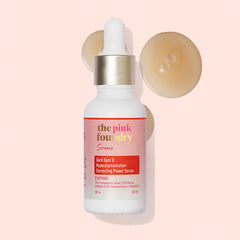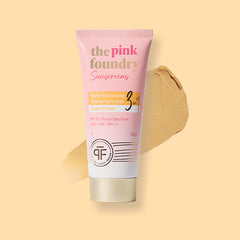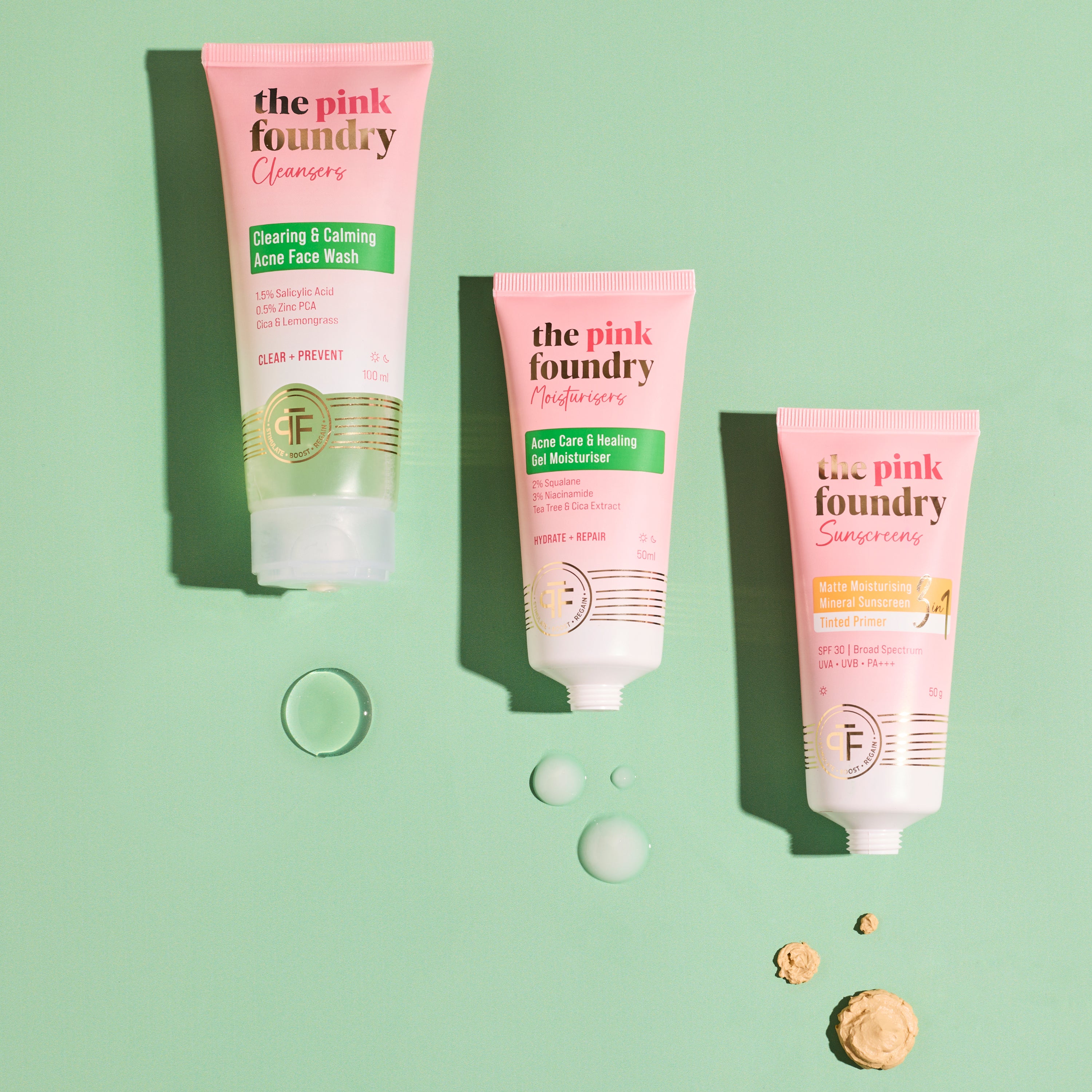Skin Minimalism: The Simple Skincare Routine You Need
Skin minimalism or "skinimalism" has been gaining popularity over the last few years as a way to simplify skincare routines. The basic idea is that less is more when it comes to caring for your skin. Instead of a 12-step routine with multiple serums and treatments, skinimalism focuses on a simple, back-to-basics regimen using gentle, non-irritating products.
In this article, we'll break down the key benefits of skinimalism, provide tips for the ideal minimal 3-4 step routine, and offer guidance for adapting skinimalism based on your skin type.
What is skin minimalism?
Skinimalism centres around the concept of a simplified, fuss-free daily skincare routine. It usually consists of just 3-4 essential products:
- Cleanser
- Moisturiser
- Sunscreen
Occasionally, one targeted treatment product, like a serum or facial oil, can be used. The goal is to provide your skin with what it needs without overcomplicating things or overdoing treatments. Skinimalism works with your skin's natural processes instead of bombarding it with endless products.
It's the opposite of the extensive 12-step Korean skincare routine popularised in recent years. While layering products work for some, research shows that simpler is often better when caring for your skin barrier and preventing irritation.
Benefits of skin minimalism
Adopting a minimalist approach to your skincare offers quite a few advantages:
1. Simplicity and time-saving
With just a few key steps, skinimalism is much faster than complex routines that require multiple products. It saves you time both morning and evening. Quick, simplified skincare is better suited to busy modern lifestyles, whether it's for your daily skincare routine or even a weekly skincare routine.
2. Improved skin health
Too many products and ingredients can sensitise the skin over time and damage the moisture barrier. Keeping things simple allows your skin to function at its best. The right basic products like Vitamin C Face Wash give it what it needs without interference.
3. Sustainable
Using fewer products means less waste from packaging and containers over time. Skinimalism aligns well with eco-conscious lifestyles.
4. Cost-effective
Trimming down to just skincare essentials saves money in the long run. Once you find basic products you love, you can rely on those without constant new product temptation and clutter.
Best minimal skincare routine
Here are the steps by step skinimalist routine you must follow:
Cleansing
Choose a sulfate-free face wash that won't strip skin. Look for gentle surfactant cleansers ideal for daily use. First, splash the skin with lukewarm water, massage the cleanser, and rinse thoroughly.
Hydrating serum (Optional)
Serums deliver concentrated ingredients. Look for hydrating options, such as a Niacinamide Face Serum for balancing skin tone or a hydrating serum with hyaluronic acid. Use before moisturiser to maximise absorption.
Moisturising
Select an unscented moisturiser suited to your skin type. For normal to dry skin, pick a richer cream. For oily/combination skin, go with a Waterlight Hydrating Gel Moisturiser. Apply moisturiser while the skin is still damp to seal in moisture.
Sun protection
Look for broad-spectrum, Dewy Sunscreen with an SPF of 30 or higher. Apply liberally 15 minutes before sun exposure, and reapply every few hours if outdoors.
That's the basic framework. From there, tailor products to your unique skin needs.
Skinimalism for different skin types
Streamline your regular routine while still caring for skin concerns with targeted Treatments.
- Oily Skin: If you have oily skin, use non-comedogenic gel or water-based hydrators.
- Dry Skin: For dry skin, opt for rich, creamy moisturisers that will provide hydration.
- Combination Skin: When you have combination skin, use an oil-free gel moisturiser on oily areas and a creamy moisturiser on any dry zones to balance hydration.
- Sensitive Skin: People with sensitive skin should stick to fragrance-free and hypoallergenic products as part of a minimal skincare routine for sensitive skin to avoid any irritation.
Conclusion
Healthy, glowing skin doesn't require a fancy 10-step Korean-style routine with endless products. Follow the skinimalist mantra of “less is more” with a basic gentle cleanse, hydrate, protect approach. Focus on quality over quantity by choosing products tailored to your skin type and concerns. Simplify your regular regimen while still caring for your complexion.
FAQs
Is skinimalism good for all skin types?
Yes, the gentle back-to-basics approach of skinimalism can work for all skin types. The key is to choose the right basic products for your unique skin needs. Tailor your cleanser, moisturiser, and sunscreen to your skin type - oily, dry, combination, or sensitive. Add targeted treatments where you need a little extra help.
Can I start skinimalism if I have sensitive skin?
Absolutely. Sensitive skin often benefits the most from a minimal routine without irritating ingredients and products. Stick to fragrance-free, hypoallergenic cleansers, moisturisers, and sunscreens made explicitly for reactive skin. Avoid alcohol, scrubbing beads, acids, and other harsh components that could trigger sensitivity.
What are the best minimal skincare products for acne-prone skin?
For acne-prone skin, look for oil-free gel cleansers and water-based moisturisers to prevent pores from clogging. Spot treat blemishes with benzoyl peroxide, salicylic acid, or sulfur if needed. Use an oil-controlling mattifying sunscreen. You may also benefit from a weekly clay mask to remove impurities without over-drying.
Can skinimalism help with ageing skin?
Skinimalism's gentle approach helps preserve collagen and elastin as we age. Anti-ageing serum ingredients like retinol, vitamin C, peptides, and hyaluronic acid target lines when used in moderation within a basic routine. Remember—less is often more when it comes to anti-aging. Gently cleanse, nurture your skin barrier with hydration, and protect from the sun to maintain a more youthful glow.




























